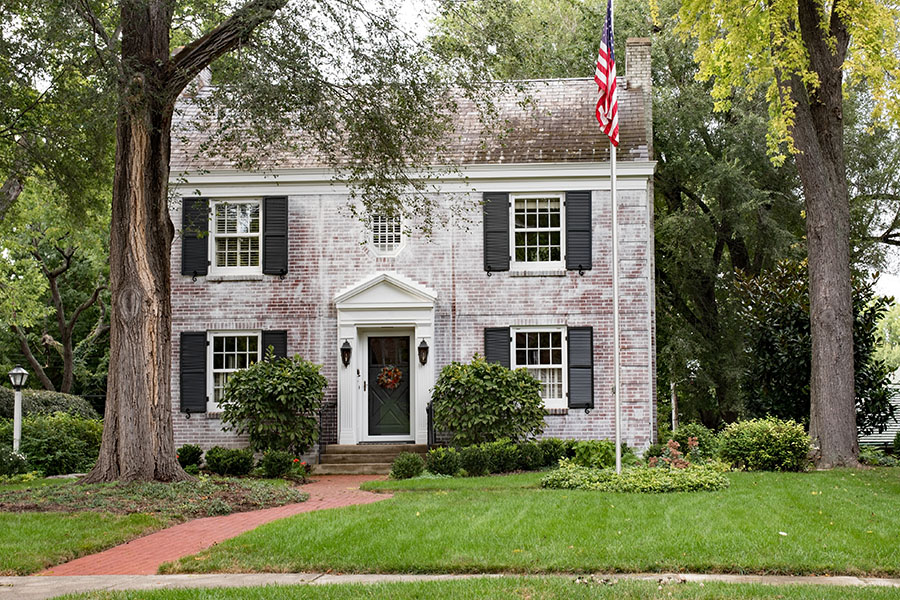Your home is the place where you should feel the most comfortable and “at home.” That is why it is your home in the first place. But not all homes are the same, and the type of home you live in can reflect your personality and values in life. Therefore, many homeowners look for a home that gives off a certain vibe. For instance, some homeowners gravitate towards houses that are new and modern. While other homeowners are inclined to seek a home that is older with distinct features and unique charm. With either choice, there are benefits and disadvantages. What is important is that you live in a home that makes you feel the most comfortable.
One aspect to consider when choosing your desired home is what the cost will be to maintain the home. This is especially true when it comes to insurance. No matter which type of home you choose, whether new or old, it is crucial to ensure that you are properly insured against damage and calamity. Because, unfortunately, misfortune can happen to any home at any time.
One difference between newer and older homes is that home insurance rates and insurance coverage options vary significantly. If you currently live in an older home or if you are beginning your search for an older home, here are a few considerations to keep in mind when searching for a home insurance company.
Are Older Homes more Expensive to Insure than Newer Homes?
Insurance providers consider many different factors when determining the cost of insuring your home. One major factor they consider is the age of the structure, materials, and systems involved. But just because a home is new does not necessarily mean it is less expensive to insure, and the opposite is also true; just because a home is old does not automatically mean insurance costs will be astronomical.
But there is truth to the statement that older homes are more expensive to insure. As a generality, once a home reaches the 10-year-old mark, costs begin to increase incrementally. And once a home reaches the 30-40 year mark, depending on company policy, it is officially considered an “older home.”
So, does this new label automatically mean your insurance premium will skyrocket? Not necessarily. Though the easy answer to “Are older homes more expensive to insure than newer homes?” is “yes,” there are individual attributes of your older home that may raise or lower the cost. Therefore, determining a home’s insurance cost is on a case-by-case basis.
What Factors Affect the Price of Home Insurance for Older Homes?
Insurance companies insure homes with the hope that they will never have to pay a claim, especially a large claim. After all, they are a business that wants to remain profitable. Therefore, insuring a home that is older and outdated increases the risk that they will have to pay a claim. Essentially, if a home is likely to need repairs in the near future, it is not the best investment for an insurance company. To counteract the additional risk and likelihood of a payout, insurance companies will charge more to insure a home that is higher risk. To determine how much they should charge, they look at several factors.
Age
As stated above, the age of a home is one of the most prominent factors when determining the cost of insurance. As a home ages, it experiences wear and tear, and in most cases, this wear and tear will need to be repaired or replaced. Therefore, if an insurance company deems that a home is nearing an age where repairs often occur, such as roof replacement, then they will charge an increased cost for insurance.
Construction Materials
The building materials used to construct a home play a large factor in how expensive that home is to insure. Replacing outdated materials with newer materials or repairing specialty pieces can be very expensive. Many older homes are built to reflect the time period in which they were constructed and may include ornate designs and rare materials. These can be more costly to replace than a newer home that uses modern designs and inexpensive materials.
Specialized Labor
If an older home has particularly unique characteristics, it may be more difficult to replace. Not only because the materials are more expensive or harder to find but because the skill required to install them may be a specialized or outdated practice that not every construction worker can install. For instance, homes with historical architecture or stonework may require masonry work from a specialist whose labor will be more expensive.
Types of Insurance for Older Homes
The reason it is vital to carry homeowners insurance is so that if disaster strikes or if sudden damage occurs, you are not left paying for the repairs yourself. The costs of repair and replacement can be very expensive. Such as, sometimes damage can be so extensive that you must rebuild your home entirely, and most homeowners do not have the cash value of their home sitting around waiting to spend. Before selecting a policy, it is vital to consider the types of insurance coverage you wish to carry, as this can affect your monthly costs, deductible, and coverage amount if you need to file a claim. There are essentially two ways to structure your coverage.
Replacement Cost Coverage
This type of coverage insures your home for the cost that it would take to replace the materials that are damaged. It accounts for appreciation or the increase in market value and cost of labor that take place over time. This coverage has a higher price tag because it can cost the insurance company more to replace items when they are damaged, but it assures that you will not have to pay for the increase in cost out of your own pocket. Many policies have the option to add an extended replacement cost coverage endorsement to your standard dwelling coverage in a percentage amount or in the form of a guaranteed replacement cost of your home.
Actual Cash Value
This type of coverage is the cheaper option because the insurance company will not pay the added amount needed to replace or repair items, but it pays what the damaged item costs, accounting for depreciation. For example, if you incur roof damage with an actual cash value policy, then your insurance company will pay for the damage according to what the current materials would cost in their used conditions. In this case, you would pay the difference between the cost of old materials and new ones. Selecting this type of coverage can be cost-saving on a month-to-month basis but is not usually beneficial if damage does occur, especially with older homes.
Coverage Options for Older Homes
Water Backup Coverage
This add-on policy is handy when your home experiences water damage from a sewer backup. This can happen to a house of any age but is especially common in homes with old rusted pipes. The cost to replace pipes and repair damage from water can often exceed dwelling coverage limits, therefore, having water backup coverage as an added policy may benefit you.
Ordinance or Law Coverage
Does your older home have outdated plumbing, electrical systems, or electrical wiring that does not meet current building codes? State laws require that repairs and replacements cannot merely be fixed according to the standard in which they were previously built but must meet today’s standards. Therefore, your rebuild will require the labor and materials needed to bring the home up to code. It is wise to ensure that your policy includes ordinance or law coverage to cover this cost.
HO-8 Homeowners Policy
Sometimes, your home may be deemed too much of a risk to be covered by a standard homeowners insurance policy. In these cases, the cost to replace your home may exceed the market value of your home. You do not want to risk not carrying any insurance, though. HO-8 policies are designed for homes such as these that are more to replace than they are worth. These are often carried as actual cash value policies, therefore, you should confirm what this means for you with your insurance company.
Finding Insurance for Your Older Home with IIBArizona
Are you in the market for insurance coverage for an older home? At Independent Insurance Brokers Arizona, we understand that there are special circumstances that you need to consider when looking for insurance for your older home. Our team is available to help answer questions, compare quotes across different insurers, and help you select the best policy for you and your home.
Schedule a call with us today to discuss your options.

